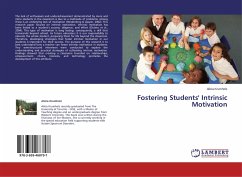The focus of this study was to investigate the relationship among a set of variables that might influence students level of achievement in English. Of primary interest was the influence of emotional intelligence. Other variables included: (a) family encouragement for learning English, (b) study habits, (c) levels of engagement, and (d) attitudes toward studying English. Relationships among variables were included in a model that was developed through a review of the literature. Structural Equation Modelling was the primary method used to analyse data, with AMOS selected as the programme to test the model. Results suggest that emotional intelligence has a direct effect on students achievement in English. In addition, they suggest that emotional intelligence affects achievement in English indirectly, through family encouragement, study habits, and levels of engagement. This study provides a useful contribution to the understanding of emotional intelligence. It encourage policy makers, classroom practitioners, and families to remember that emotional intelligence should be promoted for students to benefit fully from learning opportunity offered at school, and within the home.
Bitte wählen Sie Ihr Anliegen aus.
Rechnungen
Retourenschein anfordern
Bestellstatus
Storno








